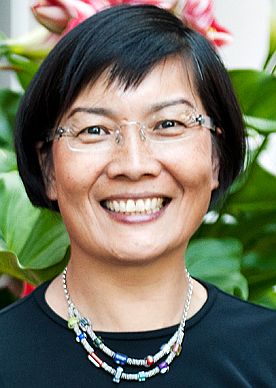 By ELENA YANG
By ELENA YANG“Time” Is Real & Measurable…yet time is also very subjective
Most of the time, the idea of “time” resides in our perception. “You have too much time on your hands,” or, “I don’t have enough time to…” Every minute or hour is exactly the same quantity as the one before and the one after. Yet, try to tell that to a harassed father or a Fortune 500 VP (who could be a mom with two toddlers).
Of course, everyone knows that stress, anxiety, and sense of time (or the lack of it) are intimately related. We don’t need more social research to tell us that, but we sure can use more social studies to tell our bosses and their bosses. On the fifth hand, who has the time to read about this, or listen to others’ “whining?” Willingly, or unwillingly, as a society, we collective play into “wearing exhaustion as a status symbol” (link).
I’ve said it before, “Stress is both subjective and objective” (link). So I am glad that research has born out this notion. Studies show (link) that when people are asked to state just two goals, they feel less stressed than those who are asked to state two conflicting goals in their lives. The same researchers followed up with actual measurement of people’s anxiety levels (self-diagnosed answers to survey questions). Not surprisingly, many scholars have linked today’s myriad of technologies to our stress level.
Time is fluid; time is porous. Nowadays, as the boundary between work and play gets murkier, the feeling of “not enough time” gets stronger. Even though on average (remember, it may not apply to you as an individual) Americans have worked less hours over the decades, people feel more stressed than ever (link ). One of the reasons is the blurred work-play boundary. Of course, there are other reasons. Since the 2008 recession, many white-collar professionals have had to work extra hours and take on more responsibilities, all without additional pay; this would not be reflected in the statistics. Others have had to take on more than one job to sustain themselves, but this population might not be the majority, therefore only minimally impacting the statistics.
However, time may not be the major resource for which we feel the greatest need. As technologies encroach upon our lives, they compete for our attention span (link), a terribly important resource that we often take for granted. Would we know when that “take for granted” thing is gone? When so many items in our environment signal their demand our attention, we forget that we have only a limited amount of that resource.
The link I provide for the “attention” issue is excellent in drawing our attention to the issue of our public space, billboards, buses, airports, train stations…all occupied by advertisements or TVs, multiple visual and audio assaults. Silence seems to be a scarce and expensive commodity these days. By paying for the “privilege” you can get into the semiprivate, quiet lounge at the airport. Mathew Crawford in “The Cost of Paying Attention,” says it well, “Silence makes it possible to think.”
If we can turn off the noises around us, we might be able to hear ourselves better. In moments of silence, we often feel that time is slowing down; we can breathe better and see our goals clearer. The “time, conflicting goals and stress” researchers offer at least two methods to counter stressful feelings:
- Practice breathing slowly, especially in times of stress, and
- Reframe your goals. Instead of making goals “conflicting,” make them “exciting” or “challenging.” Some people might regard such tactics childish and pathetic…I challenge them with, “What harm would it do if you just try it?”
As it has been proven that we can adopt a body posture to give us a greater sense of power (link), we certainly can practice deep and rhythmic breathing to slow down time, or reduce our stress and anxiety. Or, try to reframe the situation in a positive light. Most of the time, our mind leads actions, but sometimes, we need to act first before learning from our actions. Try it, it may be a fairly easy habit to adopt (link). Yes?
As I was finishing my draft of this article, I encountered one of the most heartbreaking and heartwarming essays about time. A young neurosurgeon wrote about his reflection of time (link). At age 38 he was facing his impending death – time moved too fast — while caring for and loving his infant daughter who couldn’t yet know about time. In reading his essay, time stopped for me. I absorbed his words, I listened to his voice; while I felt saddened by his fate, I also felt the warmth of his wisdom and love.
Take your time; take some time to do what you love. Till next week,
Staying Sane and Charging Ahead.
Direct Contact: taso100@gmail.com
Editor’s note: Dr. Yang has a PhD in Management from the Wharton Business School of the University of Pennsylvania. She taught at Wharton for a number of years, and consulted for small groups and small organizations and on cross-cultural issues. Her professional worldview comprises three pillars: 1. All organizations are social systems in which elements are inter-related. 2. To improve organizations, the focus should be on the positive dimensions on which to build. This philosophical foundation is Appreciative Inquiry. 3. Yang subscribes to the methodological perspective that she is part of the instrument from which to gain quality data from respondents, and with which to compare and contrast with others’ realities.

